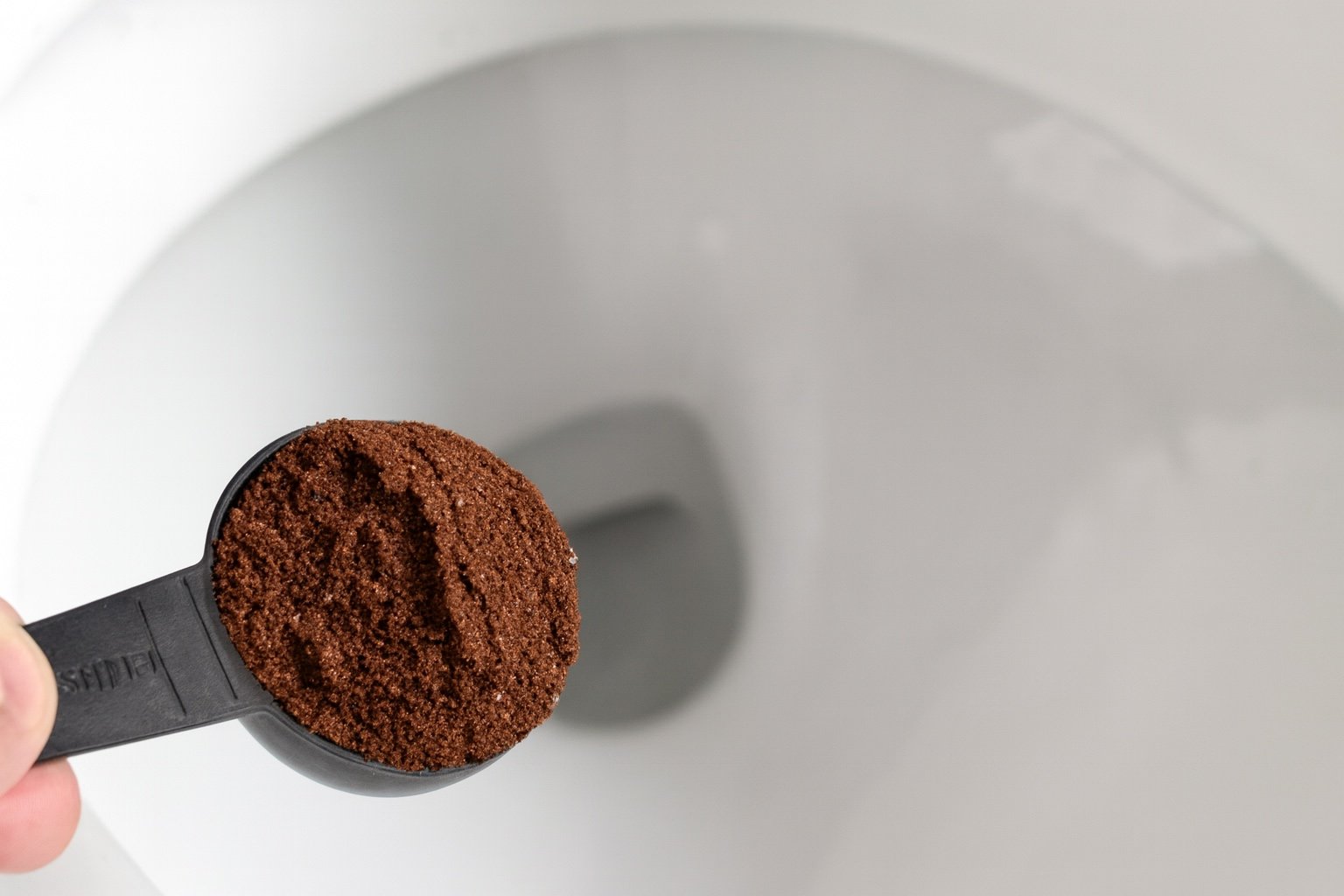Coffee grounds often end up in the trash — but that’s a waste of a surprisingly versatile home remedy. What many consider simple kitchen leftovers are being reused in an unexpected place: the bathroom. More and more people are using coffee grounds to clean and freshen their toilets. It may sound unusual at first, but the trick has some very practical benefits.
Coffee Grounds as a Gentle Toilet Cleaner
The fine, grainy texture of used coffee grounds makes them an excellent mild abrasive. Instead of reaching for harsh chemical cleaners, you can simply add a tablespoon of coffee grounds to the toilet bowl and scrub with a brush. Light stains and buildup come off more easily, and you avoid using aggressive products that often contain bleach or other harsh chemicals.
At the same time, coffee grounds help absorb and neutralize unpleasant odors. This makes them particularly useful for bathroom cleaning, since bad smells can linger in drains.
A Handy Trick Before Going on Vacation
One clever use of this method is before leaving for a trip. If you’re going to be away for several days, toilets can develop a stale smell because the water in the bowl sits still. Adding a spoonful of coffee grounds before you leave can help trap and neutralize those odors until you return.
It’s a low-cost, natural alternative to toilet blocks or chemical fragrance products.
Beyond the Bathroom: Coffee Grounds in the Kitchen
Coffee grounds aren’t just useful in the bathroom — they’re also surprisingly effective in the kitchen. For example:
-
Removing strong food odors: After chopping onions, garlic, or fish, rubbing a small amount of coffee grounds on your hands or cutting boards can help remove lingering smells.
-
Deodorizing spaces: Place a small bowl of dried coffee grounds in the fridge to absorb unpleasant odors, or slip some into shoes to keep them fresh.
-
Natural scouring agent: Stubborn stains on pots, pans, or grills can be tackled with a bit of coffee grounds mixed with water or dish soap. The mild abrasiveness lifts burnt-on food without scratching surfaces.
This makes coffee grounds a natural, zero-waste cleaning product you already have at home.
Coffee Grounds in the Garden
Gardeners have long appreciated the hidden power of coffee grounds. Rich in potassium, phosphorus, and nitrogen, they make a nutrient-dense fertilizer for vegetables and flowering plants. Crops like tomatoes, cucumbers, zucchini, and leafy greens all benefit from the slow release of nutrients coffee grounds provide.
Sprinkling used grounds around the garden can also deter common pests. Ants, slugs, and even cats dislike the smell and texture, so spreading grounds around garden beds can help protect plants naturally without relying on pesticides.
Tips for Safe and Effective Use
While coffee grounds are versatile, there are a few simple rules to keep in mind:
-
Dry them first: Fresh, wet grounds can develop mold. Spread them out and let them dry before storing or reusing.
-
Use in moderation: Too much coffee in soil or drains can cause clumping. A tablespoon or two at a time is usually enough.
-
Test with plants: Some plants thrive with added acidity, but others don’t. Use sparingly and observe how your plants respond.
By following these tips, you can make the most of this natural resource without causing unwanted side effects.
A Zero-Waste Household Hack
In an age where sustainability and cost savings matter more than ever, reusing coffee grounds is a simple but powerful habit. Instead of buying chemical cleaners, odor absorbers, or synthetic fertilizers, you can rely on what’s already in your kitchen.
Putting a spoonful of coffee grounds in the toilet is just the beginning. Whether in the bathroom, kitchen, or garden, this everyday by-product proves that waste can be transformed into value.
So before you toss your next batch of grounds in the trash, think again. Your toilet, your plants, and even your fridge might thank you.
